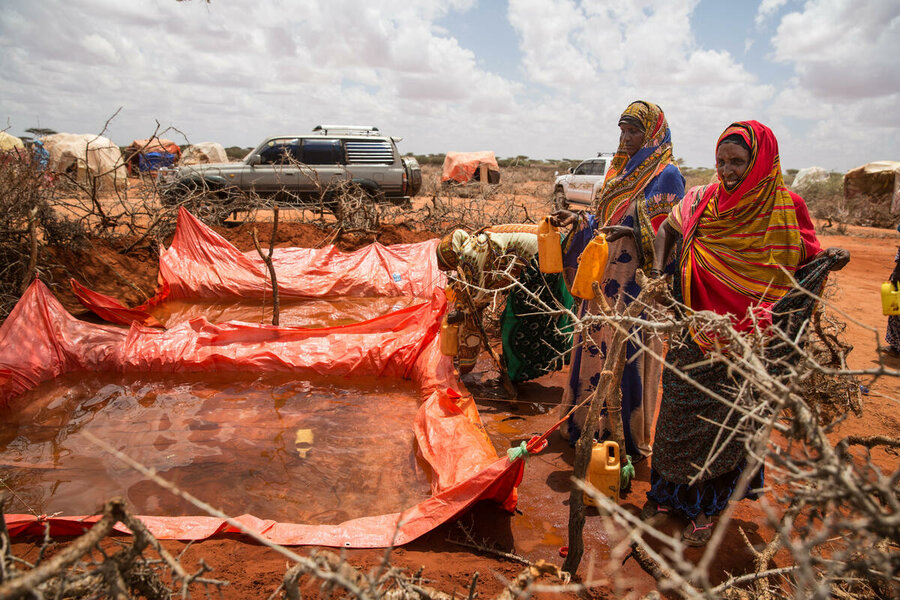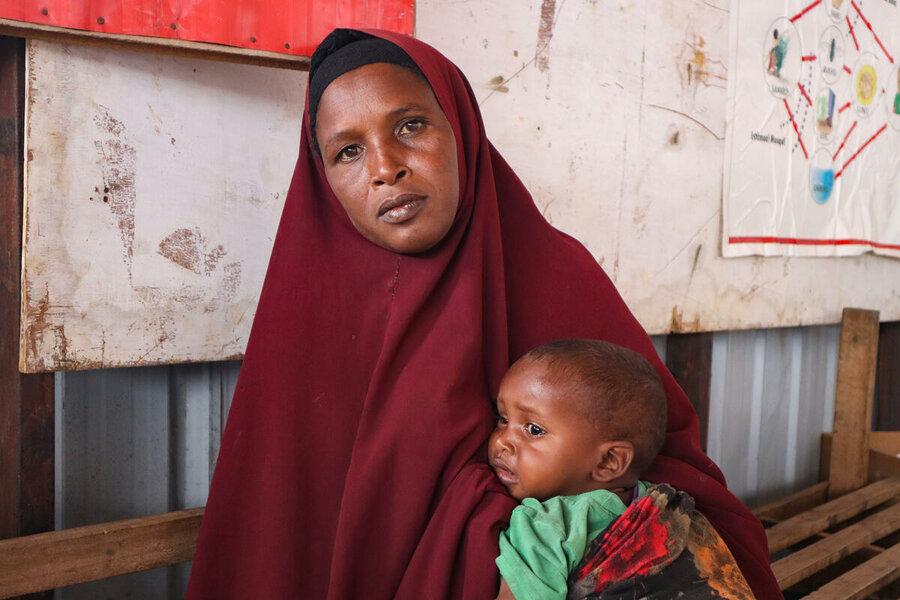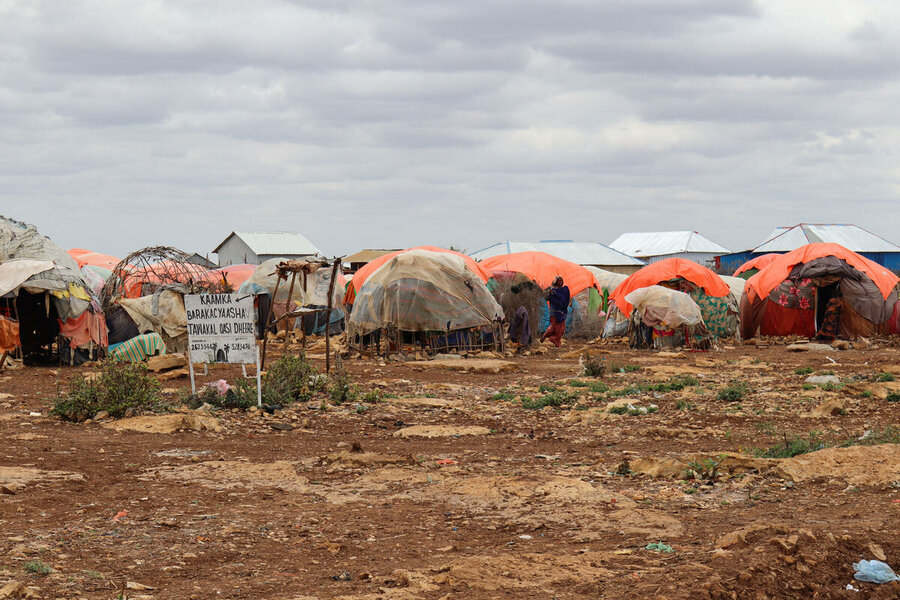
"There's a level of desperation that I haven't seen since the height of the Darfur crisis," says Laura Turner, World Food Programme (WFP) deputy country director for Somalia.
"This is significantly worse."
WFP is in a race against time to save lives, with famine projected in Baidoa and Burhakaba, in the country's Bay region, in coming months - Somalia is among Horn of Africa countries suffering their worst drought in 40 years.

"We're right now in the middle of a rainy season that hasn't materialized," says Turner, speaking from the town of Galkayo - where she has an armed escort. "We're now skipping yet another planting and harvest cycle - every cycle that we miss, things get progressively worse for the people we support, particularly in locations that we can't reach with assistance consistently or routinely."
In responding at an unprecedented scale this year, WFP and its partners have so far managed to contain a situation that could swiftly turn in to a huge human tragedy.

"We've managed to keep famine at bay, so far, but we're not out of the woods yet," says Turner. As the largest relief agency in Somalia, "WFP's been able to sustain food and cash relief which reached 4.1 million people last month."
However, "malnutrition is increasing exponentially, mortality rates are also increasing significantly - it's only really the availability of food that's keeping us from a famine declaration at the moment, and this is thanks to the support provided by WFP and the Food Security Cluster partners."






